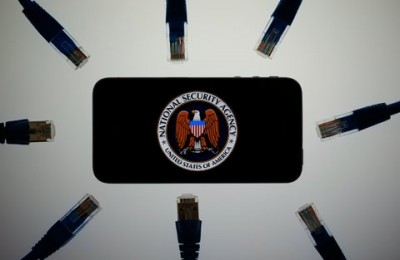AT&T Collaboration with the NSA Reveals US Corporate-intelligence Nexus

Classified NSA documents published by the New York Times and ProPublica this weekend have further exposed the vast scale of collaboration between the US National Security Agency (NSA) and the major telecommunications giants in carrying out illegal and unconstitutional spying operations.
The new documents, which come from NSA whistleblower Edward Snowden, originate from between 2003 and 2013. The participation of at least nine major tech firms in joint projects with NSA Special Source Operations was already revealed in documents leaked by Snowden in 2013, but the identities and roles of the firms involved remained murky.
The NSA’s longest and most fruitful corporate partner, which goes by the codename “FAIRVIEW” in the leaked documents, is AT&T. Repairs made to a FAIRVIEW fiber optic cable near Japan directly coincided with the rupturing of AT&T lines in the same location caused by a 2011 earthquake, the reports found.
The scale of the data transferred to the US intelligence agencies makes a mockery of claims from the Obama administration that the spying has been “targeted” at alleged terrorists.
AT&T was the first corporation to support NSA’s aim to have “live,” real-time surveillance of the internet. Some 400 billion Internet metadata records were sent to the NSA in one month toward the beginning of the company’s involvement in this program in 2003.
From 2003 onward, AT&T transferred billions of emails sent on US networks to the NSA. It embedded surveillance hardware in at least 17 of its US-based internet centers.
NSA documents describe AT&T as “highly collaborative” and praise the company for its “extreme willingness to help” with NSA operations around the world. AT&T maintains a “close partnership with FBI” and provides access to “Cable Stations/Switches/Routers (IP Backbone),” the documents state.
By 2011, AT&T was also giving the NSA 1.1 billion cell phone records per day. As the Times notes,
“This revelation is striking because after Mr. Snowden disclosed the program of collecting the records of Americans’ phone calls, intelligence officials told reporters that, for technical reasons, it consisted mostly of landline phone records.”
AT&T’s involvement in NSA spying was “global” in scope, one document states. The company helped transform the United Nations headquarters into an NSA listening post, with all UN internet communications passing into the hands of surveillance agents.
According to the documents, by 2013, AT&T was providing the NSA with access to 60 million foreign-to-foreign emails a day.
However, AT&T is only one of many companies involved. Telecommunications giant Verizon (referred to within the framework of a program called STORMBREW) collects data from eight interconnected sites across the continental US. STORMBREW also provides the NSA with access to seven “international choke points,” the documents state.
NSA protocols call for agents to exercise maximum courtesy in their dealings with the corporations, on the grounds that US intelligence ties to the corporations constitute “a partnership, not a contractual relationship.”
It has already been established by previous Snowden-leaked documents that the US government maintains secret contracts with the communications firms, paying out large sums of cash as part of its corporate operations.
According to the latest leaked documents, in 2011 alone the NSA paid AT&T nearly $190 million.
The Obama administration has worked to cover for the illegal actions of the companies in collaborating with warrantless mass surveillance. Earlier this year, the White House successfully blocked a lawsuit by AT&T customers demanding redress for privacy violations resulting from the company’s contracts with the US government.
In the wake of the Snowden revelations that began in 2013, the Obama administration has worked to ensure that all the spy programs would continue. In June of this year, the White House backed passage of the USA Freedom Act, which purported to end only one of the many programs that have been set up to spy on the population of the United States and the world: the metadata phone records program.
In fact, the new legislation merely transfers the responsibility to store phone records from the NSA itself to the telecommunications companies. As made clear by the revelations on AT&T’s role in collaborating with the NSA, this amounts to little more than changing the name of the sign on the door, since the telecommunications firms essentially function as extensions of the spy apparatus.

